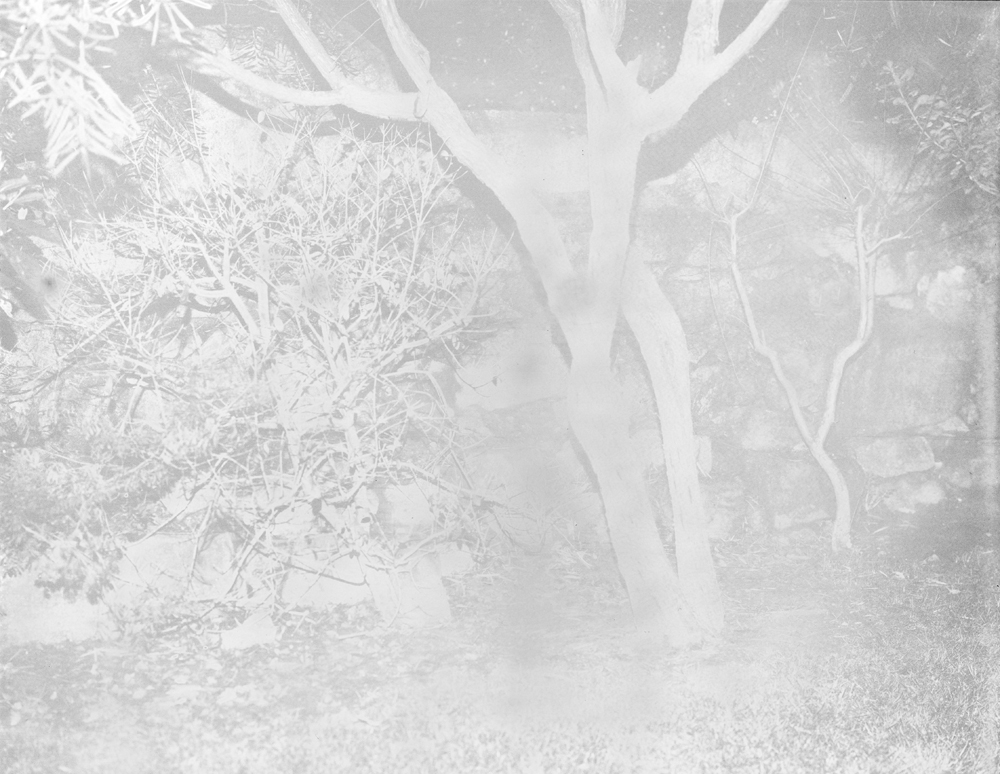AUTHOR: IVO MARTINS
EDITION: (Catalogue) Centro Cultural Vila Flor DATE: October 2014
André Cepeda’s photographs are presented as a literary exercise, a kind of narrative in image-based language,
whose semantic field, that is liberated from any orientation or style, foregoes a straightforward description of
reality.
Nothing seems to remain from the photographer’s original impulse to capture a specific moment except for a
residual trace inscribed on the photosensitive material. Similarly, it’s impossible to extract a precise motive,
purpose or reason from his photos that justifies the inherent choices underpinning their framing. Faced by the
recorded situation, the sensations experienced by the artist are illegible.
Different events are described and confirmed to us on a daily basis, via various media, in which the image has
become profoundly overvalued. The information overload of images accentuates the discrepancy between written
and visual evidence. As a result of technological advances, the former balance between these two modes of
communication no longer exists.
The image has an autonomy that revolves around the strength of the recorded fact, while the text enjoys a
freedom that is materialized via the narrator’s words, which are always contingent and imprecise. Nonetheless
there continues to be an intention to establish a compromise that is capable of combining the word and image.
Because the former can either be an intrinsic part of the second, or its opposite - and these functions may interact
spontaneously.
Using a digital recording device to witness and transmit an event, on site, offers numerous advantages in terms of
ease, speed of access to information, and the irrefutability of the events. Media coverage of live reporting has
trivialized the image-based power of representation, due to the general availability of means and resources that
produce an amalgamation of facts, on a serial basis.
Traditional processes - that are slower in terms of their descriptive narration and transmission - therefore tend to
be underestimated. André Cepeda’s working method acquires a dissident symbolism in this context.
His work stems from a long and reflective observation process, which refuses any form of aestheticising
abstraction, stripped of narrative. His content is communicated in silence, without the pressure of
communicational rhetoric. Sociopolitical references are enunciated, without imposing any commitment to any
specific ideological intervention programme. The hidden truth reveals itself without any persuasive intent, in the
subtraction of the ostensive gesture, in the positive effects of rejection of the discursive device, that is so often
ineffective.
Photographs liberate discrepancies, divisions, ruptures, cracks and discontinuities in the observer’s
consciousness. The image embedded in each work undergoes an elaborate process of cognitive amplification,
offering a critical view on the world, via a public affirmation of truth. The latent sense of nudity and cruelty
found in many recorded details become more perceptible and intense before each gaze, proposing internalization
of suffering, pain, loneliness, decay, abandonment, segregation, as a driving force to find a new reality that is
neither corrupt nor unjust.
No one is innocent in a negligent society that creates spaces of confinement and degradation, because nothing
occurs by accident. The work presented by the artist contradicts the idea of impartiality, and dampens references
to that which is politically and socially unexplainable and soothes any feelings of guilt. It rejects the knowledge
and vision of a horrific reality, disguised by the utilitarianism and immediacy of contemporary societies. It
condenses, in a simple construction, the interior exercise of imagining authentic concerns of justice, exposing
absurdity and the unreasonable dimension of indifference. The message contained in the interstices of the
images, radiates a libertarian sense of protest and indignation, without ties to a rigid form of confrontation.
The photographs’ black and white tonalities return the image to its primal essence. The selective accumulation
exerted by the subject's attention, his gaze, transforms each photograph into a unique and irreplaceable
specimen, which makes it possible to understand the difference between reality and artificially staged events.
Between the recorded fact and the observer, André Cepeda’s vision imprints an eminently socio-political
dimension, materialized via a sincere and introspective act of contestation.
This exhibition summarizes the evaluative argumentation of an ideal of truth, to the extent that each image is
enjoined to the next, resulting in a work of superimposition of experiences, disagreements and refusals, whose
implicit political and social criticism is manifested through the artist’s talent. The exhibited works display a
body, a coherent identity, as a formula for immunity to a hostile and inhumane exterior, which transcends the
photographer’s intervention. The photographer foregoes any kind of manipulation, because he would otherwise
deform that which he is recording.
Visual syntheses persist from the experienced sentiments, whose immanent values condition and provoke
sensitivities. That which is presented contrasts with the neutrality of the exhibition room, causing a cognitive
gap, and thus enabling us to glimpse a porous whole of extreme situations of confinement, imprisonment,
marginality, abjection, isolation, loneliness and claustrophobia. The reality immortalized in the photographs
induces an interpretative discipline, stimulating new readings and, in the apparent chaos of multiple meanings,
our critical gaze is invited to update an ignoble world that reveals itself subtly, in suave processes of humiliation.
Only through integrity and dignity, constructions that stand outside the reality invoked by photographer, will we
be able to understand the strength of the portrayed moments, as inhumanely occupied spaces.
Presentation of this photographic work by André Cepeda is intended to encourage critical reflection, based on the
awareness of someone who assumes his role as a narrator and wants to share the rare experience of knowing
what it is to be mortal in an enigmatically transitional and brutal place.
TRANSLATION: MARTIN DALE

